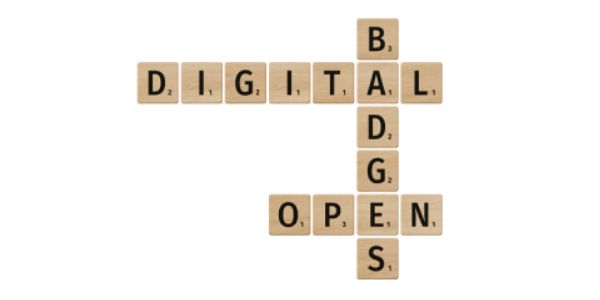
January 28, 2022, by Helen Whitehead
Open Badges in Moodle
Open Badges are a commonly globally accepted form of micro-accreditation that also provide motivation for students to complete a course, part of a course, or a series of tasks. Open Badges are verifiable and shareable, and they contain detailed information about the achievement and what the recipient did to earn the badge (evidence of learning). They are a digital means of recognizing accomplishments or skills.
The University of Nottingham can issue such badges through Moodle and they include details of the University as the trusted issuer as well as metadata which confirms what the learners has achieved to gain the badge. Badges issued within Moodle appear on an individual’s profile in Moodle and can also be exported to showcase on LinkedIn or other social media sites, or on Badge sites such as Badgr or Open Badge Passport.
For the learner, their credit-based University education sits alongside a range of other learning and skills development. A personal Badge collection may provide a framework in which individuals can make sense of their own educational development over time.
Recently, we’ve created a Toolkit resource that explains a lot more about using Badges in your Moodle courses and modules.
Using Badges in Moodle to enhance engagement
To implement badges effectively as a teacher issuing them, it’s useful to know about completion tracking in Moodle. A badge can be issued automatically on completion of a set number of activities, or manually by a teacher/lecturer/tutor after reviewing Moodle activity data.

Key points when using badges
- They should not be too easy to get (e.g., not just for a single forum post, but for contributing to forum posts across a whole semester).
- They aren’t as appropriate where students already gain credit from their learning. Gaining additional, digital or employability skills or careers goals would be appropriate reasons to award a badge.
- They are backed by the University so should be carefully designed using University graphics guidelines.
Examples of using open badges
Celeste McLaughlin (see e.g, this slide deck) used “Completer” and “Influencer” badges for online courses in staff development. It’s just as applicable an idea for other learners.
- Completer is given for finishing an online course, but only upon completion of a post-course reflective summary, based on a template. The template asks questions such as “what ideas will you take forward from this course into your work?” and “what challenges do you anticipate in using these skills?”. Full engagement is encouraged by the use of minimum word counts, completed exemplar forms, and negotiation with the participant.
- The Influencer badge was awarded to those voted by their peers as having contributed most meaningfully to an online course. The possibility of achieving this badge seems to have increased markedly the level of contribution to courses.
Ian Glover from Sheffield Hallam University found that students like badges but there’s a need to link them to professional accreditation and it is important not to issue too many, so that each badge represents genuine achievement – a policy and guidelines on awarding badges are a good idea. Elsewhere digital open badges have been used to grade students’ programming and soft skills, as digital credentials for information literacy training, to support Inquiry-Based Learning, and to recognize competencies vs. completion vs. participation.
More information: Resource for staff on How to use Badges in Moodle and the Xerte Toolkit mentioned above Using Badges in Moodle to enhance engagement
No comments yet, fill out a comment to be the first

Leave a Reply